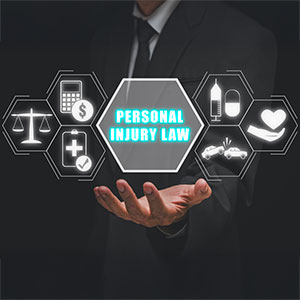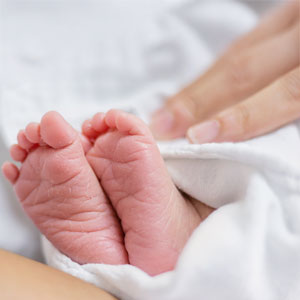Hot Water Heater Scalding Injury
Scalding Hot Water Can Cause Serious Injury Or Death
Various sources have reported that anywhere from 3,000 to 5,000 burn injuries occur every year due to scalding hot water from a hot water heater that was producing water over 150°F. Many of these personal injuries are serious. Some scalding injuries from direct exposure to hot water are so severe that they result in death. If you or someone you know how suffered a burn injury due to hot water, you should obtain a free consultation from a Lakeland personal injury attorney who accepts burn injury cases.
One Second Of Direct Contact With Water Over 150 Degrees Fahrenheit Is Dangerous
All it takes to create third degree burns is water that 150 °F in direct contact with the skin for one second of exposure. Children under the age of 5 and the elderly are at a heightened risk of scalding injuries due to having thinner skin.
If you or someone you know has been injured by scalding hot water, you will need the help of a personal injury attorney in Lakeland, Florida to investigate your claim and attempt to hold the respective parties responsible for their legal liabilities.
It is important to remember in these cases that an injury to a child being placed in a bathtub or sink with excessively hot water is not the parents’ fault. The real problem is that the water should not be so hot when it comes out of the faucet because it is foreseeable that a parent will forget to test the water temperature or may not appreciate the danger because the parents’ hands are not sensitive to temperature like a child or elderly person’s skin will be.
Premises Liability – Hotels
In many hotels, if you turn the hot water handle all the way, the water that comes out is hot enough to burn. In Florida, the hotel operator has a common law duty to act reasonably in providing hot water to guest accommodations.
This means that a hotel operator should periodically test the hot water coming out of the pipes in the guest rooms to ensure that the maximum temperature is not excessive. The operator of a hotel has full control over the hot water system to all of the guest rooms. This level of control places the hotel operator in a superior position to decide what a reasonable temperature the hot water should be.
Many scalding injuries, particularly to children, occur in hotels because the parents are not accustomed to the water coming out much hotter than it does at home. In such situations, the parents fail to realize how hot the water actually is and place their infant or baby in water that causes severe scalding or burning.
Premises Liability – Rental Units And Apartments
Likewise, landlords have control over the premises in which they rent to their tenants. Apartment complexes and many rental units prohibit tenants from changing the setting on the water heater. Again, a landlord’s duty in Florida is a common law duty to act within reason. If the water coming out of the tap is too hot, then a landlord should have tested the water temperature before renting the unit.
How Hot Is Too Hot?
The Consumer Product Safety Commission (CPSC) recommends setting water heaters to a maximum of 120 °F (49°C).
The reason for this is to prevent microbes, such as legionellosis (Legionnaires’ disease), from growing in water that is not hot enough to kill the growth. On the other hand, direct exposure on the skin to water at 130 °F can caused burns within 30 seconds.
Product Liability Claims
Your burn or scalding injury case may be a product liability claim for a design defect. You will not know until someone investigates your particular hot water heater whether improper installation or setting of the thermostat was the cause or whether there was a defect in the thermostat allowing it to operate at dangerously high temperatures.
Testing is the only way to find out the cause. Some hot water heater thermostats may read 15 °F or more off from true temperatures. This failure of a thermostat to function at the proper temperature may be a design defect or a manufacturing defect.
Third Party Claims
Finally, you may have a claim against a licensed and insured plumber who installed your hot water heater without a proper mixing valve. A mixing valve in the faucet helps prevent burn or scalding injuries by mixing a percentage of cold water with the hot water.
Similarity To McDonalds Hot Coffee Case
Some people may consider a hot water heater case a frivolous lawsuit. However, much like the case of Liebeck v. McDonalds (the hot coffee case), you have to understand that the people injured were not able to appreciate how hot the water was even though they knew the water would be hot.
For example, the plaintiff in Liebeck knew that coffee served by McDonalds would be hot (that part is common sense). However, she did not appreciate how hot it was and how badly she would be injured if it spilled (don’t forget that Ms. Liebeck was elderly and likely had thin, fragile skin as a result). What made things worse was the fact that McDonalds had increased the temperature of its coffee to 180-190 °F instead of the 140 °F suggested by Ms. Liebeck’s attorney. Interestingly enough, the food industry continues to serve coffee at temperatures that exceed 150 °F.
Get Help With Your Serious Injury Or Wrongful Death Claim
If you have serious personal injury or wrongful death claim as a result of scalding from hot water, you should contact a personal injury attorney in Lakeland, Florida for a free consultation to determine the merits of your case.
Visit Our Blog For More
Read our blog for more information on personal injury related subjects. We accept clients with personal injury cases in Polk County including Winter Haven, Haines City, Davenport, and Bartow, Florida.


